Where serenity and relaxation top the menu
Updated: 2013-03-22 06:26
By Fan Feifei(HK Edition)
|
|||||||
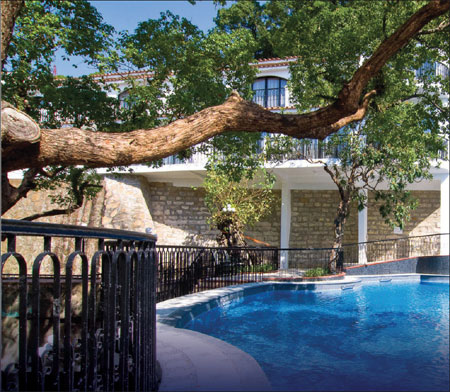
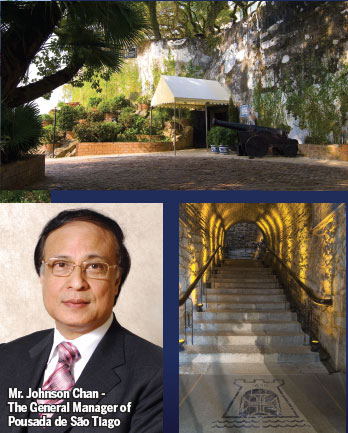
A fort to repel pirates in the 17th century becomes the Pousada de Sao Tiago, a unique idyll in Macao. Fan Feifei reports.
Do you ever long to leave the hustle and bustle of city life behind and retreat to a haven where you can enjoy uninterrupted peace and quiet and listen to the soothing murmur of water and the singing of birds? Then the Pousada de So Tiago in Macao, an idyllic haven, will make your dream become a reality.
Originally a fortress built by the Portuguese in the early 17th century to defend Macao against hostile European nations and local pirates, the Fortaleza da Barra was transformed into the enchanting hotel known today as the Pousada de So Tiago.
Located in Macao's prestigious residential area at the tip of the Macao peninsula along the scenic, tree-lined Praia Grande Bay, the Pousada de So Tiago is only five minutes away from the historic A-Ma Temple, Maritime Museum, Gate of Understanding, and the entertainment and shopping district.
"In general, our customers are those who prefer a tranquil life or want to relax for a few days," says Johnson Chan, general manager of the Pousada de So Tiago. "This hotel is totally different from other city hotels in Macao, so there is no competition with them. People came here to enjoy this kind of lifestyle."
It really is difficult to find such a quiet and cozy hotel in bustling Macao, which makes the Pousada de So Tiago very unique. "It is a far corner of Macao," Chan says with a smile.
The Pousada de So Tiago offers the ultimate in comfort, luxury and exclusivity to guests. Each of its 12 spacious suites has a large balcony overlooking the picturesque Inner Harbor of Macao and the Pearl River Delta.
All suites have mahogany furniture, marble bathrooms, and custom-made chandeliers and lamps, which were imported from Portugal and other parts of Europe. The design is elegant with the bed, coffee table and sofa bringing a strong feel of southern Europe.
The suites are also equipped with all modern amenities, including a 40-inch Bang & Olufsen television with surround-sound speakers. The lush bathroom comes with a mega 60 cm diameter "rainforest shower", steam room and "in mirror" bathroom TV.
This hotel is one of Macao's most charming and historical landmarks. It is also a member of Relais & Chteaux, an association of the finest and most unique hotels and gourmet restaurants across the globe.
Another unique feature of this hotel is its chapel. The Chapel of St. James was built in 1740 within the fortress' walls and dedicated to Saint James, the patron saint of the Portuguese garrison. It has been preserved as part of the hotel and serves as an ideal venue to celebrate special occasions.
"On average, there are about four to five weddings or (other) ceremonies each month," says Chan. "The number fluctuates depending on the month of the year and the season." He says even people not staying in the hotel enjoy posing for wedding photographs in the amazing surroundings of the hotel.
Its Spanish restaurant La Paloma serves an exquisite selection of authentic Spanish cuisine specialties and is the perfect venue for intimate and romantic dinners. It also offers classic modern Catalonian cuisine, known primarily for its rich variety of seafood dishes. The stylish Cascata Bar offers a wide selection of refreshing drinks and light snacks.
"Although there are different kinds of cuisines in Macao, there is no authentic Spanish cuisine," says Chan. "The food and beverage part is very important, and it is the soul of a hotel."
An outdoor swimming pool with a sun terrace set amidst century-old banyan trees offers guests perfect relaxation. While soaking up the sun, they can enjoy the lovely harbor view.
"My management philosophy is very simple," says Chan. "Be honest to your boss, your guest and your staff. Whenever you make a commitment, you must try your very best to deliver."
Chan, who has nearly 40 years' experience in the hotel business, describes the current biggest challenge to Macao's hotel industry is the "labor issue". It is not only about the insufficient labor but also their caliber.
"Most of our customers are from the West, the Chinese mainland, Hong Kong, Japan and other countries. Generally speaking, the guest groups strike a balance," Chan adds. The average stay in this hotel is longer than in other city hotels, normally three to four days.
He remains very confident about business growth in 2013, predicting it will be a good year for the hospitality industry.
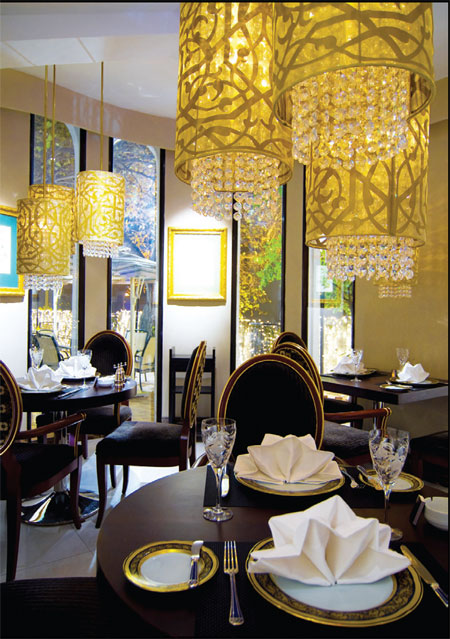
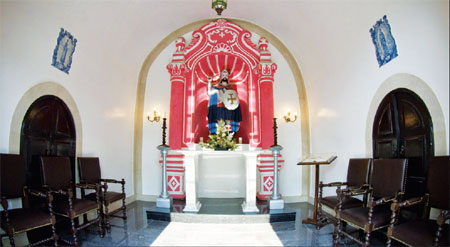
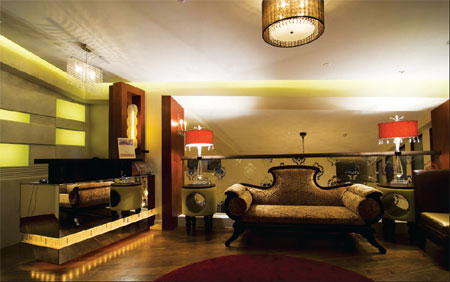
(China Daily 03/22/2013 page1)